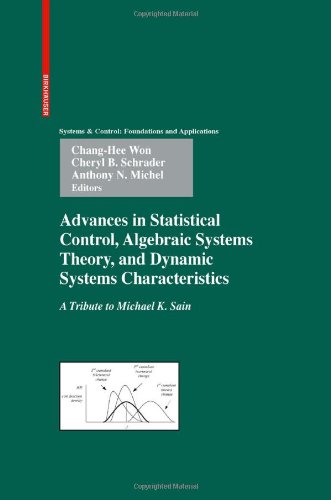

Most ebook files are in PDF format, so you can easily read them using various software such as Foxit Reader or directly on the Google Chrome browser.
Some ebook files are released by publishers in other formats such as .awz, .mobi, .epub, .fb2, etc. You may need to install specific software to read these formats on mobile/PC, such as Calibre.
Please read the tutorial at this link: https://ebookbell.com/faq
We offer FREE conversion to the popular formats you request; however, this may take some time. Therefore, right after payment, please email us, and we will try to provide the service as quickly as possible.
For some exceptional file formats or broken links (if any), please refrain from opening any disputes. Instead, email us first, and we will try to assist within a maximum of 6 hours.
EbookBell Team

5.0
110 reviewsThis volume—dedicated to Michael K. Sain on the occasion of his seventieth birthday—is a collection of chapters covering recent advances in stochastic optimal control theory and algebraic systems theory. Written by experts in their respective fields, the chapters are thematically organized into four parts:
* Part I focuses on statistical control theory, where the cost function is viewed as a random variable and performance is shaped through cost cumulants. In this respect, statistical control generalizes linear-quadratic-Gaussian and H-infinity control.
* Part II addresses algebraic systems theory, reviewing the use of algebraic systems over semirings, modules of zeros for linear multivariable systems, and zeros in linear time-delay systems.
* Part III discusses advances in dynamical systems characteristics. The chapters focus on the stability of a discontinuous dynamical system, approximate decentralized fixed modes, direct optimal adaptive control, and stability of nonlinear systems with limited information.
* Part IV covers engineering education and includes a unique chapter on theology and engineering, one of Sain's latest research interests.
The book will be a useful reference for researchers and graduate students in systems and control, algebraic systems theory, and applied mathematics. Requiring only knowledge of undergraduate-level control and systems theory, the work may be used as a supplementary textbook in a graduate course on optimal control or algebraic systems theory.